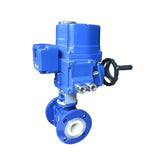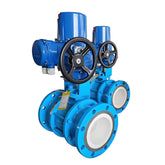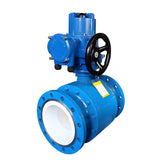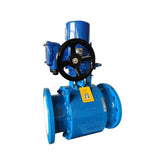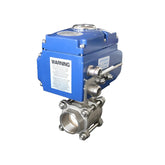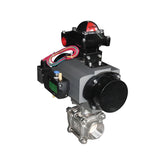Ceramic Ball Valve Benefits You Should Know About
Table of Contents:
2.Ceramic Ball Valve Durability
3.Corrosion & Chemical Resistance
4.High Temperature & Pressure Tolerance
5.Low Maintenance & Cost Savings
6.Ceramic Ball Valve Applications
7.FAQ
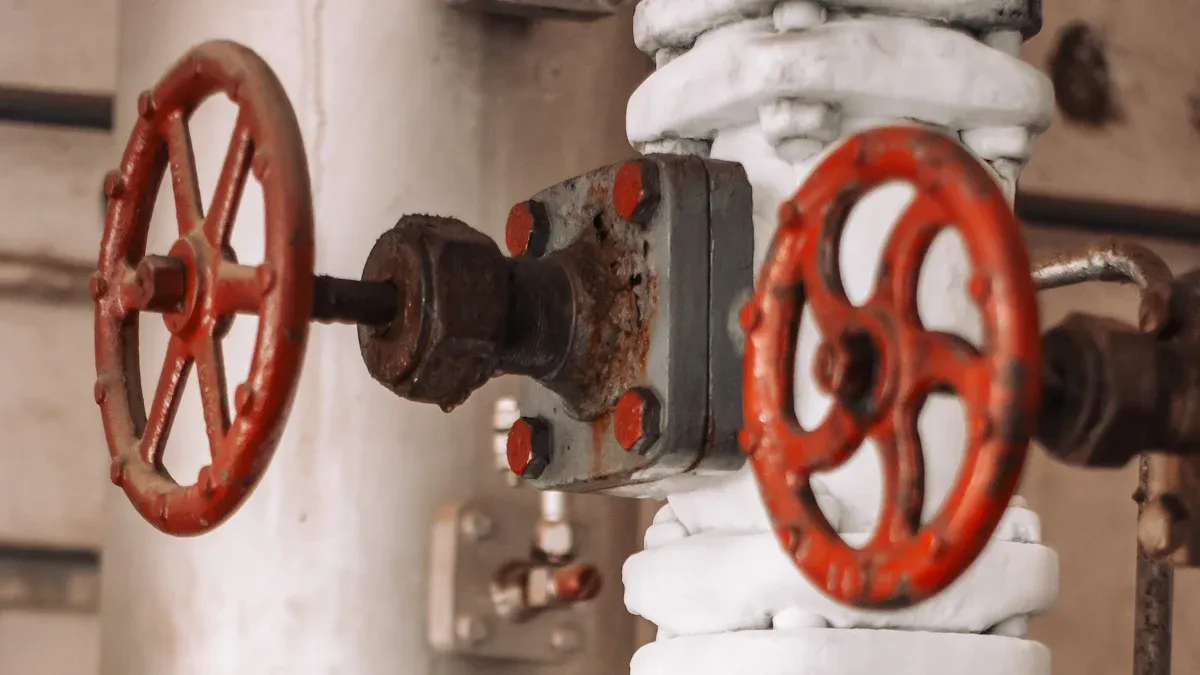
You want a valve that works for a long time. You need it to resist strong chemicals. It should keep working in hard places. Ceramic ball valves from our product collection can do all this. Here is how they compare:
|
Benefit |
Description |
|---|---|
|
Durability |
Lasts longer than metal valves. |
|
Corrosion Resistance |
Works well in places with lots of chemicals. |
|
Wear Resistance |
Handles rough and tough use easily. |
|
Market Growth |
More people want these ceramic ball valves for hard jobs. |
Many industries pick ceramic ball valves from our product collection for their applications. These valves work with strong liquids. They need less fixing. They help keep things safe.
Key Takeaways
-
Ceramic ball valves last longer than metal ones. This means you do not have to replace them often. These valves do not rust and can handle strong chemicals. So, they are good for tough places. Ceramic ball valves do not need much care. This lets them work longer and stop less. They work well when it is very hot or under a lot of pressure. This helps them keep working in hard situations. Using ceramic ball valves can save a lot of money over time. This is because they are strong and do not break easily.
Ceramic Ball Valve Durability
Hardness & Wear Resistance
You need a valve that can handle tough work. Ceramic ball valves are very hard. They do not get scratched or damaged easily. Metal valves can get scratched faster. You can use ceramic ball valves with sand or slurry. They do not wear out quickly.
Here is how ceramic ball valves do in lab tests:
|
Test Type |
VEL-8 Performance |
Comparison |
|---|---|---|
|
Dry Sand Abrasion |
Lowest volume loss, showing high wear resistance |
Best of all tested coatings |
|
Wet Sand Abrasion |
Five times lower wear rate than nano-structured TiO2 |
Very durable with slurry |
|
Tribological Testing |
Top performance in ASTM G65 & G105 tests |
Works well in rough places |
These tests show ceramic ball valves stay strong. They keep their shape even with rough particles. You get a valve that lasts longer. You do not need to replace it often.
Tip: If your system uses abrasive slurries or strong chemicals, ceramic ball valves can help you avoid lots of repairs.
Longevity in Harsh Conditions
You want your equipment to last a long time. Some places have high heat, strong chemicals, or lots of pressure. Ceramic ball valves work well in these tough places. They do not rust or wear out fast. You will spend less time fixing or changing them.
Ceramic ball valves last longer than metal valves in hard jobs. Chemical plants and oil and gas companies use them. You save money and have less downtime. These valves keep working when others stop.
Here are some real-life examples:
-
A coal plant in Asia started using ceramic ball valves. The plant spent 60% less on new valves and had less downtime from ash.
-
A natural gas plant in Europe used ceramic ball valves. The plant had fewer broken valves and kept heat better.
Ceramic materials also work well in nuclear power plants. They stay stable and resist radiation. This makes them good for very tough jobs.
You can count on ceramic ball valves to work well year after year. They keep working even when things get really hard.For corrosive mineral slurry applications, you can also read our article on ceramic valves for corrosive slurry.
Corrosion & Chemical Resistance
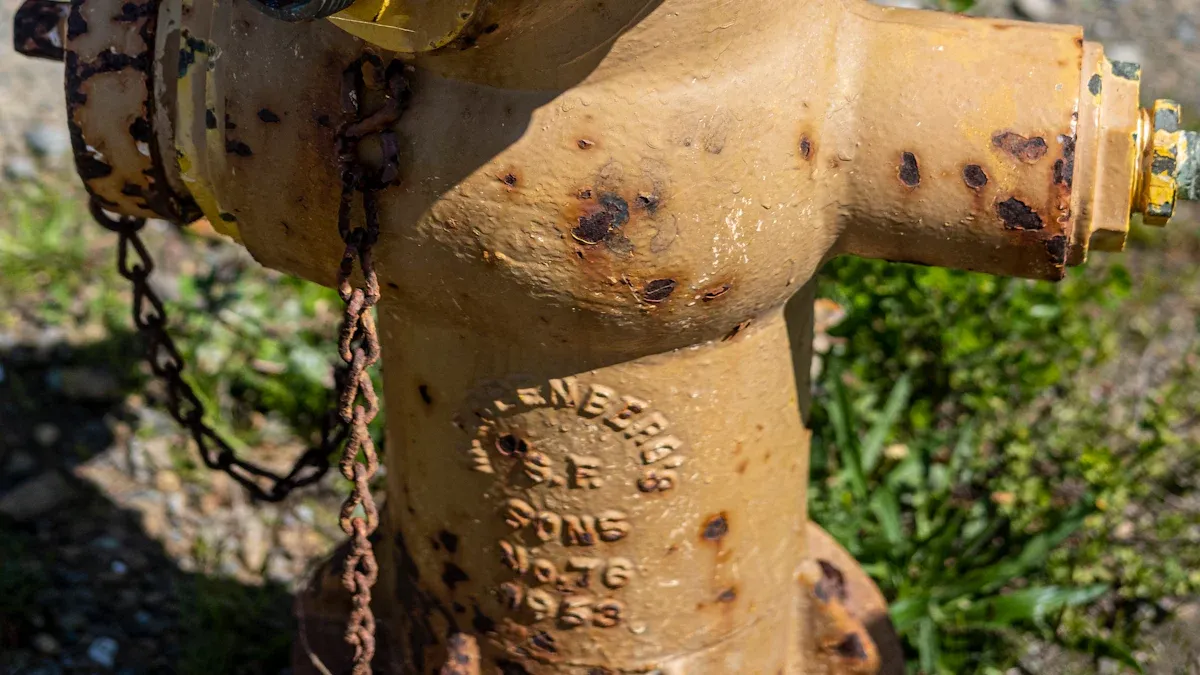
Performance with Aggressive Media
You need a valve that can handle strong chemicals. Many factories use acids and alkalis every day. Regular metal valves can rust or break fast. Ceramic ball valves are a better choice. They use special ceramics that do not react with most acids or alkalis. This keeps your process clean and safe from bad reactions.
Ceramic ball valves work in mining, power plants, steel mills, and chemical plants. These places use strong chemicals that ruin other valves. Ceramic ball valves keep working, even with rough or harsh liquids. They also help stop contamination, which is important for pure results.
Note: Ceramic ball valves cost more than metal or plastic ones, but they last longer and work better with strong chemicals.
Suitability for Corrosive Environments
You want your equipment to last in tough places. Strong acids like sulfuric acid can hurt many valves. Stainless steel valves often do not last long here. Plastic valves can handle some acids, but not high heat or pressure.
Here is how different valves do in tough places:
-
Ceramic ball valves: Work best with high heat and pressure. They resist damage from chemicals and rough use.
-
Metal valves: Do not do well with strong acids. Stainless steel can rust fast.
-
Plastic valves: Handle some acids but break with heat or pressure.
If you work with lots of chemicals, you need a strong valve. Ceramic ball valves keep your system safe and running well, even when other valves fail.
High Temperature & Pressure Tolerance
Stability Under Extreme Conditions
You need equipment that works when it gets hot. Ceramic ball valves can handle high heat and pressure. They stay strong when metal or plastic valves might break. You can use them in places with very high temperatures. They also work well when the pressure is strong. Many factories use these valves for hard jobs.
Here is a table that shows how ceramic ball valves do compared to others:
|
Valve Type |
Temperature Range |
Pressure Rating |
|---|---|---|
|
-20°C to +400°C |
PN16 – PN100 / ANSI 150 – 600 |
|
|
ASTM A216 WCB Ceramic Lined Ball Valve |
-29℃ to +150℃ |
PN10-PN16 |
Some ceramic ball valves have silicon carbide. These can work at over 1300℃. You do not have to worry about quick temperature changes. The valves do not crack or lose their shape. They also stay strong with acids or alkalis.
Tip: If your system gets hot fast or uses strong chemicals, ceramic ball valves help you worry less.
Consistent Operation
You want your system to work well every day. Ceramic ball valves help make that happen. They do not break when the heat or pressure goes up. You get steady results, even in tough places.
-
The valves keep working when the temperature changes fast.
-
They do not rust when they touch acids or bases.
-
You do not have to fix or change them often.
Many industries use ceramic ball valves in power plants and chemical factories. They also use them where there are rough slurries. You can trust these valves to keep your system safe and working.
Low Maintenance & Cost Savings
Reduced Downtime
You want your system to work well without stopping a lot. Ceramic ball valves help you reach this goal. These valves do not rust or wear out fast. You do not have to change them often. When you use ceramic ball valves, you fix fewer problems. This lets you spend more time working.
Here is a table that shows how ceramic ball valves are different from metal and plastic valves:
|
Type of Ball Valve |
Characteristics |
Maintenance Requirements |
|---|---|---|
|
Ceramic |
Handles rough slurries, high heat, and strong chemicals. |
Check for wear, clean to stop build-up, and oil the valve stems. |
|
Metal |
Strong but can rust. |
Look for rust and check if it works right. |
|
Plastic |
Light and does not rust but wears out fast. |
Look for cracks and clean to stop clogs. |
Ceramic ball valves only need simple care. You look for wear, clean them, and oil the stems. You do not worry about rust or lots of breakdowns. This means your team fixes less and works more.
Tip: Fewer repairs mean your system stops less and your business makes more money.
Long-Term Value
You want to save money over many years. Ceramic ball valves give you good value because they last longer than others. You do not have to buy new valves all the time. You also do not lose money from shutdowns.
Here are some ways ceramic ball valves help you save money:
-
Lower costs for fixing.
-
Fewer times you need to replace them.
-
Work well in tough places.
-
Less chance of leaks or breaks.
A ceramic ball valve keeps working even when things get hard. You get steady work and fewer problems. These valves are strong and last long, so you spend less and keep your system safe.
|
Evidence Type |
Description |
|---|---|
|
Ceramic valves do not rust, so you change them less. |
|
|
Maintenance Frequency |
Strong design means you fix them less, so your system stops less. |
|
Operational Efficiency |
They work well, so you do not lose money from stops. |
Note: Picking ceramic ball valves helps you keep your money safe and your system running well.
Ceramic Ball Valve Applications
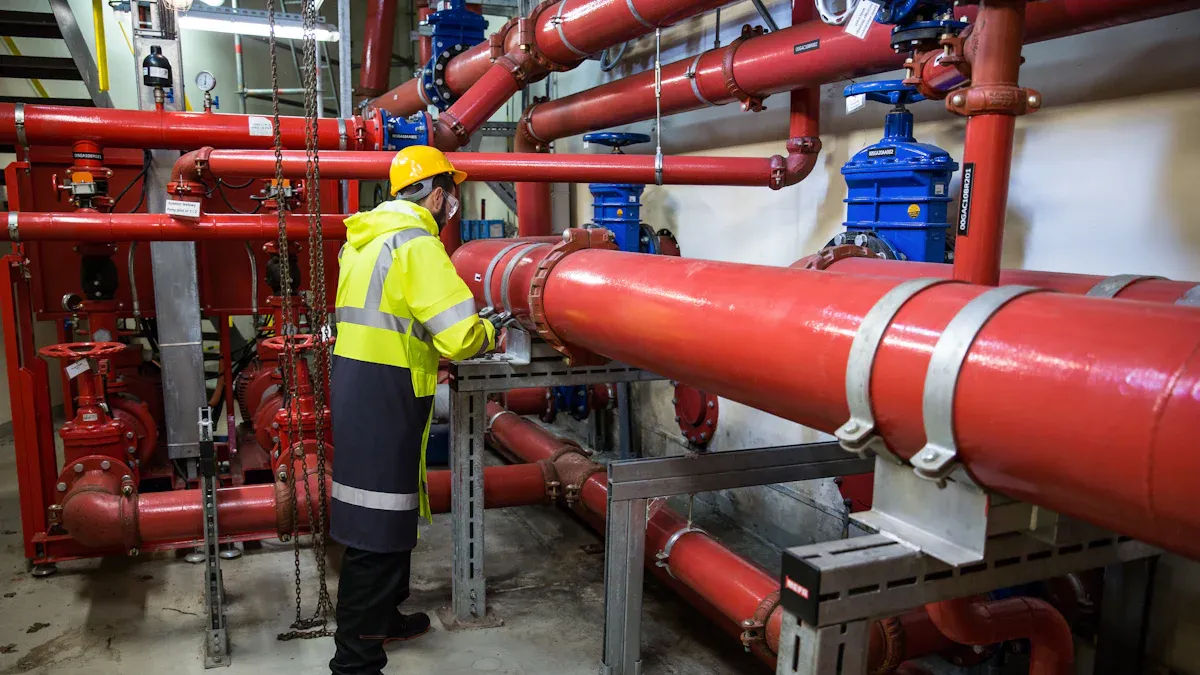
Industrial Uses
Ceramic ball valves are used in many big industries. These valves help control hard-to-handle liquids and gases. They work well where other valves do not last. Here are some places that use them the most:
-
Power plants use them for steam and cooling water.
-
Oil and gas companies use them for careful processes.
-
Chemical plants pick them for strong chemicals.
-
Paper and pulp factories use them for thick slurries.
-
Fertilizer and coal chemical plants need them for strong acids and bases.
-
Petrochemical plants use them for making fine chemicals.
-
Pharmaceutical and food factories use them for clean liquids.
Ceramic ball valves are used in many fields. Their strength and resistance make them a good pick for hard jobs.
|
Industry Sector |
Application Description |
|---|---|
|
Oil & Gas |
Used in jobs that need strong and exact valves. |
|
Chemical Processing |
Picked because they last in tough places. |
|
Used for steam and cooling water, good for high heat and pressure. |
Typical Scenarios
You may need a ceramic ball valve where normal valves break. These valves work well in hard jobs and repairs. They can handle soaps, acids, and strong chemicals. Here are some common uses:
-
Water plants use them for rough slurries.
-
Food factories use them for safe and clean liquids.
-
Pharmaceutical plants use them for moving sensitive liquids.
-
Chemical plants trust them with strong acids like hydrofluoric acid.
Note: Ceramic ball valves use alumina, zirconia, and silicon carbide. These materials help stop rust and damage from rough use.
You can trust these valves to keep your system working, even in tough places. Their strength and chemical resistance help you fix things less and keep your work safe.
You get great results and save money with ceramic ball valves. These valves work well in hard places. They last longer than most other valves. Look at this table to see how they compare:
|
Key Performance Metric |
Ceramic Ball Valves |
Other Valve Types |
|---|---|---|
|
Corrosion Resistance |
High |
Variable |
|
Durability |
High |
Moderate to Low |
|
Maintenance Requirements |
Low |
Moderate to High |
|
Suitability for Abrasive Media |
Excellent |
Limited |
|
High-Temperature Applications |
Excellent |
Limited |
New designs use smart ideas and strong materials. Many follow top rules like ISO and API. More companies use these valves now. They want better results and less time fixing things.
FAQ
What makes ceramic ball valves different from metal valves?
Ceramic ball valves use hard ceramic materials. These materials resist scratches and chemicals better than metal. You get longer life and less maintenance.
Can you use ceramic ball valves with hot liquids?
Yes, you can use them with hot liquids. Ceramic ball valves handle high temperatures well. They do not lose strength or shape when things get hot.
How do you maintain a ceramic ball valve?
You should check for wear, clean the valve, and oil the stem. You do not need to fix them often. They last longer than most other valves.
Tip: Regular cleaning helps your ceramic ball valve work better and last longer.
Where do you use ceramic ball valves most?
|
Industry |
Common Use |
|---|---|
|
Power Plants |
Steam and cooling water |
|
Chemical Plants |
Strong acids and alkalis |
|
Oil & Gas |
Abrasive slurries |
You find ceramic ball valves in places with tough liquids or high heat.
